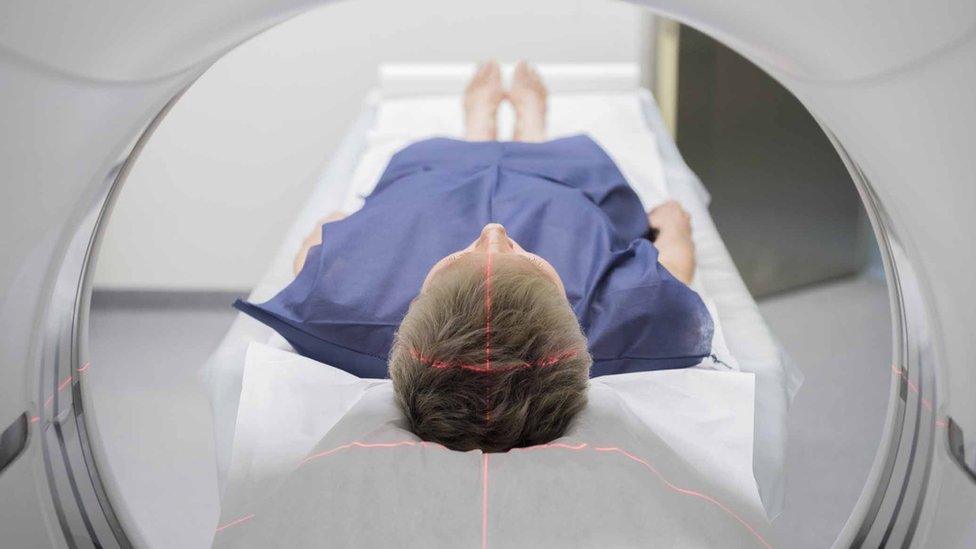NHS 75: Warning Wales' health service is not fit for future
- Published
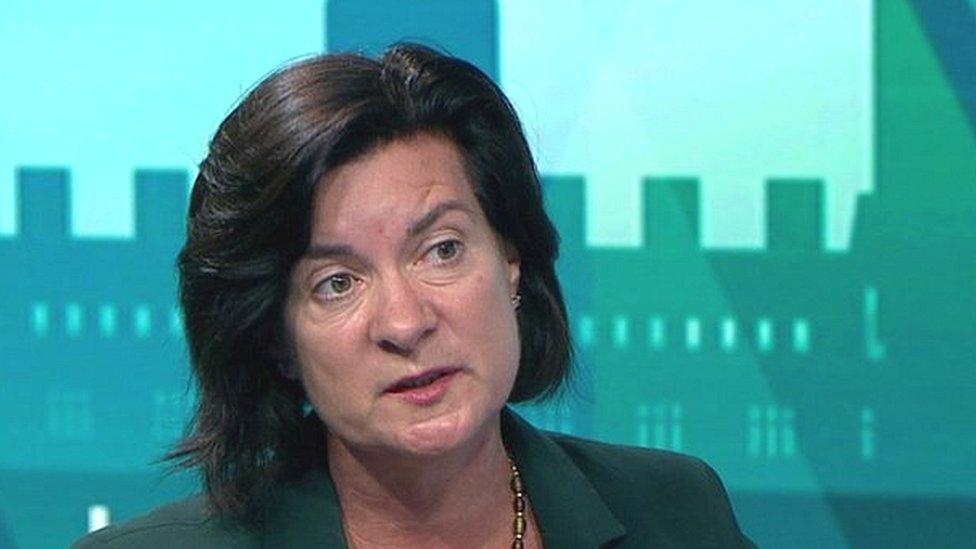
Health Minister Eluned Morgan will say that difficult questions will need to be asked of the NHS
Wales' NHS is not fit for the future in its current form, the health minister has said.
Speaking at a conference on Thursday to mark 75 years of the NHS, Eluned Morgan warned increased demand on services meant tough choices laid ahead.
She said the health service would need reform if it was to be preserved for future generations.
Groups representing NHS staff have long complained of worker shortages at all levels in the health service.
A projected rise in cancer and diabetes, among other conditions, means the health service will need to treat even more patients in future.
The number of people diagnosed with cancer is expected to rise from 20,000 a year to 25,000 a year in the next 20 years.
Type 2 diabetes is also projected to rise rapidly, reaching 17% of the population by 2035.
Advancement in treatment and care, coupled with people living longer, means there are more complex cases to treat.
During her speech, the minister also announced an independent review into the management of the NHS and repeated her calls for people to help by looking after their own health and wellbeing.
She said sacrifices might have to be made, should changes not be made to the health service in Wales.
"When you have limited resources, you have to make choices - these choices are becoming increasingly difficult as the demand keeps growing.
"There is only one cake, and my responsibility as the minister is to determine how that is cut up," she said.
Ms Morgan claimed Wales had more hospital beds per head of population than England but said that, in order to shift care from hospitals to the community, "we may need to see a reduction in the number of beds".
She was also critical of those who train as doctors or dentists in Wales, then move immediately abroad or to work solely in the private sector.
"When money is really tight we can't afford to be training people - paid for by Welsh taxpayers' money - who will then trot off to some exotic, far, distant land to work exclusively for the private sector or in another country," she said.
Retention is also a serious concern, with about 5,000 vacant posts across Wales.
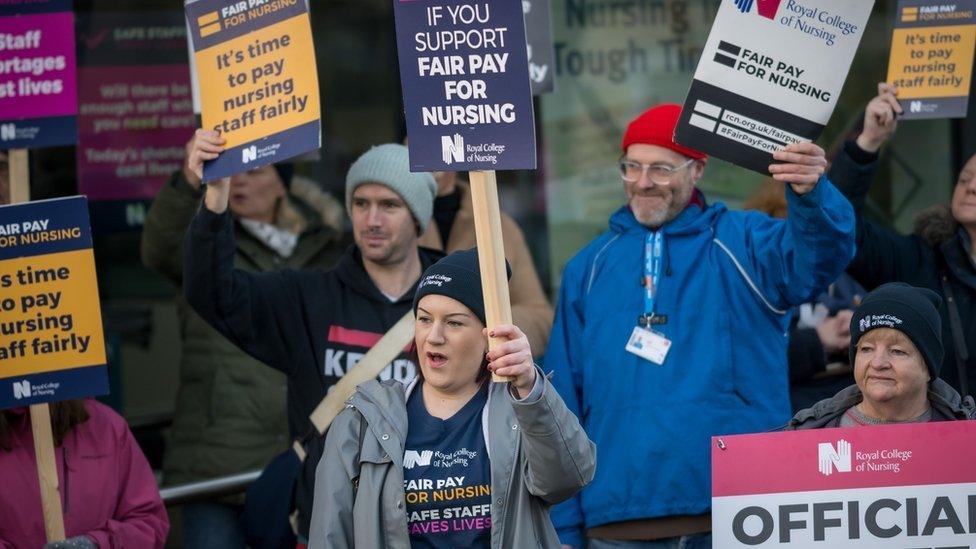
Nurses have been taking part in strikes in recent months, although they have been paused
The health service has faced a series of strikes by workers in a dispute over pay and conditions.
Mabon ap Gwynfor, Plaid Cymru's health spokesperson, told BBC Radio Wales Breakfast it was essential the NHS recruited more but also retained the staff it already employed.
"There's not flexible working hours for nurses, they had to fight for their pay and improved working conditions," he said.
The party supports higher taxes to pay improve working conditions in the NHS, he said.
"We have to look at ways of bringing money in in order to pay them for the work that they are doing," Mr ap Gwynfor said.
Gareth Davies, for the Welsh Conservatives, said waiting times had increased year-on-year in the 25 years since the NHS has been devolved to Wales and been the responsibility of the Labour government.
He argued that the issue was not just pay.
"It's also feeling valued in roles, also and feeling like there are career pathways and career progression," he said.
Earlier this week, Prime Minister Rishi Sunak set out a 15-year plan to recruit and train 300,000 more doctors and nurses in England.
It is thought the independent group being set up by the Welsh government will focus on NHS governance and accountability and whether it can meet future needs.
Meanwhile, it has emerged that the first regional diagnostics hub, serving about half the population, will include surgery space in the future, to bring down lengthy waiting lists.
While plans are still in their infancy for the new centre in south Wales, one NHS boss said he hopes some services will start by the end of this financial year.
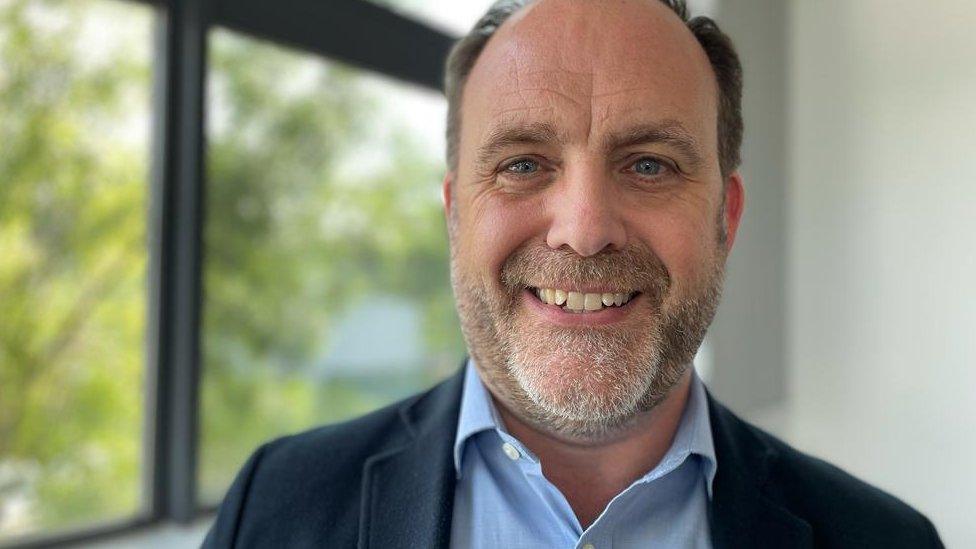
"We will have dedicated space that can't be 'crashed' by the emergency demand," says Paul Mears, of Cwm Taf Morgannwg
Paul Mears, head of Cwm Taf Morgannwg health board, where the diagnostic hub will be located, said patients would accept travelling further for care if it meant being seen more quickly in the future.
The new hub based in Llantrisant will cover the Cwm Taf Morgannwg, Cardiff and Vale, and Aneurin Bevan health boards in south east Wales.
While it was initially billed as a diagnostics and treatment hub, Mr Mears said the aspiration is for that to include surgery, further down the line.
Opposition parties have long called for the establishment of surgical hubs, which are separated from the demands of emergency patients, to help tackle the post-pandemic backlog.
Waits for orthopaedic operations and other surgeries are among the most stubborn in Wales, with more than 30,000 people waiting longer than two years for treatment.
But Mr Mears said health boards with extra capacity have already been working with neighbours to reduce their waiting lists, where possible.
"What we're looking at is how we can work together to think about the collective resources available to us and we've got some really great examples already happening in ophthalmology," he said.
"We have been offering opportunities for our patients to go down to Cardiff to have their procedure to try and make sure that we get as many people through as quickly as possible."
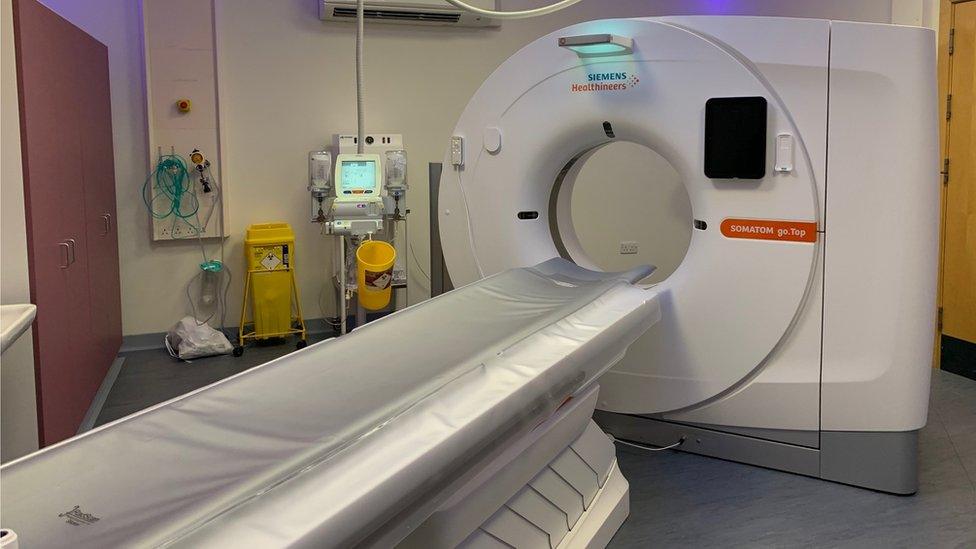
The hope is that such hubs will help reduce long waiting lists
The regional hub will be based in an existing set of buildings near the Royal Glamorgan Hospital and will provide CT and MRI scans as well as ultrasounds in the first instance.
Mr Mears hopes mobile services could be on site by spring 2024, but acknowledged it would be some time before the site is fully kitted out and operational.
"Also we'll be looking to provide treatment there - so theatre capacity to provide day surgery facilities for all sorts of surgical procedures. Potentially some orthopaedic capacity and other surgical specialties," he added.
"Often we have to cancel elective operating lists because we've got huge pressures on the beds from the emergency patients.
"A facility such as the one in Llantrisant will mean that we will have dedicated space that can't be 'crashed' by the emergency demand coming through the front door.
"It will give surgeons, anaesthetists, nurses, and others the ability to keep going with the work regardless of how many people are coming through on the emergency side."
Related topics
- Published5 July 2023
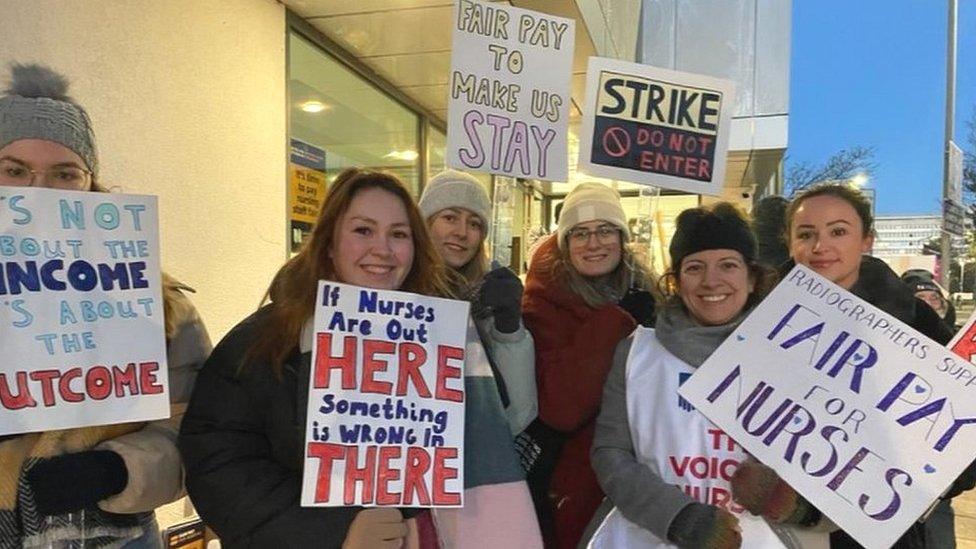
- Published5 July 2023
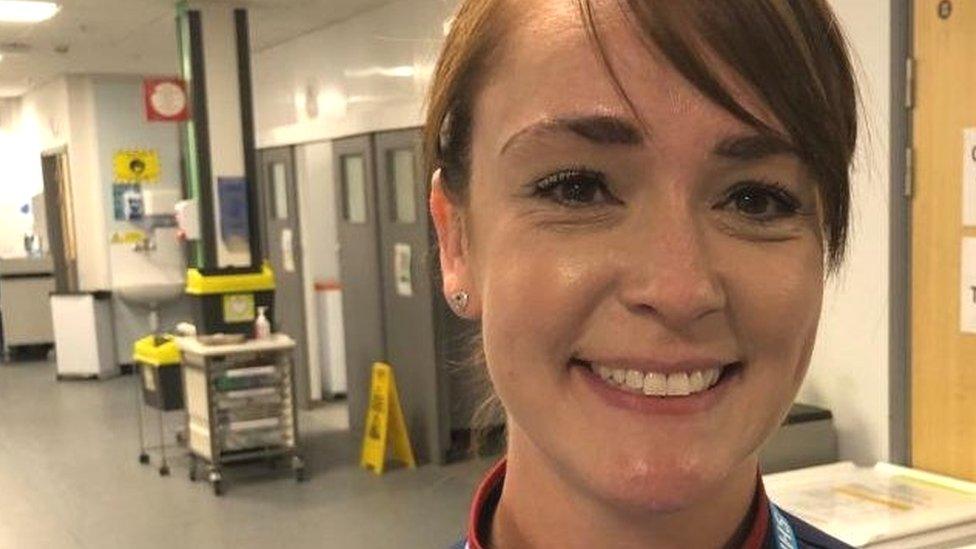
- Published3 June 2021
